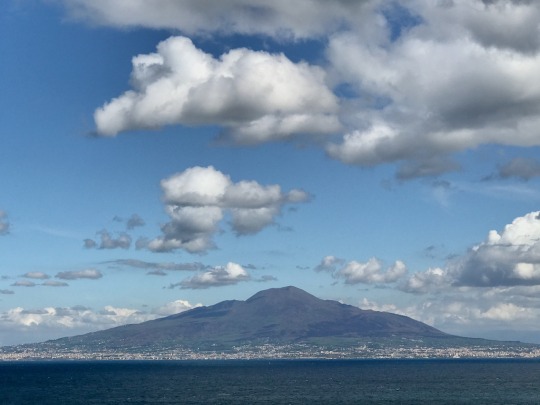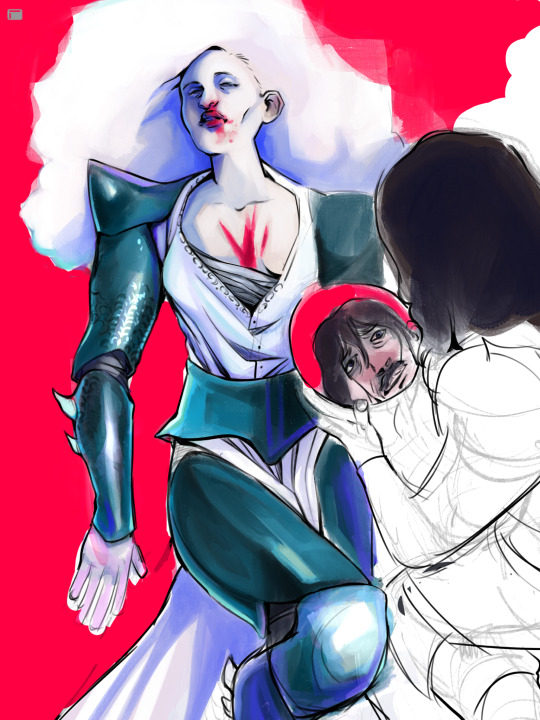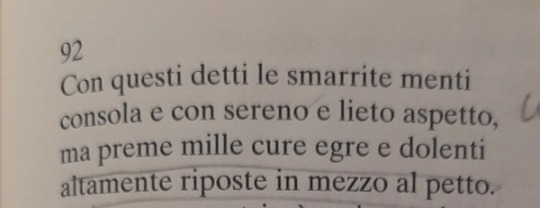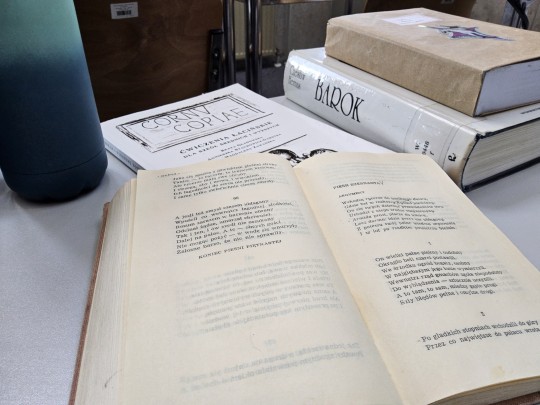#Gerusalemme liberata by Tasso
Explore tagged Tumblr posts
Text
Going to Naples and Sorrento - on an Italian opera trail.
Watching Mount Vesuvius from Sorrento, across the Bay of Naples, I thought of Pliny the Younger (born 61 AD), as you do, who wrote a detailed description of the catastrophic eruption of the volcano (79 AD) that killed his uncle, the great Roman naturalist, Pliny the Elder, who sailed into the disaster because he was interested in the science of volcanoes. Pliny the younger watched the destruction…

View On WordPress
#Anja Kampe#caruso#Caruso cocktail#caruso restaurant#Enrico Caruso#Farinelli#Fidelio#Fidelios prisoners&039;. chorus#Galleria Umberto I Naples#Gambrinus Restaurant Naples#Gerusalemme liberata by Tasso#Giovanni Battista Rubini#Handel&039;s Lascia ch&039;io pianga#Handel&039;s Rinaldo#Italian holidays#Italy#Joyce DiDonato#naples#opera#Peter Sieffert#San Carlo Opera House#Sonia Bergamasco#sorrento#Surriento#tasso#tenors#torna a surriento#Torquato Tasso#Zubin Mehta
0 notes
Text

#I asked 2 professors if this meme was right#dont come for me#also: I can’t think of any other devil representation/persona#but you got the concept#tasso invented it. YEAH.#torquato tasso#lit#tasso tag#italian literature#Gerusalemme liberata#lucifer morningstar#raphael bg3#devils advocate
34 notes
·
View notes
Text

Rinaldo and Armida
Artist: Antonio Zucchi, RA (Italian, 1726-1796)
Date: 1773
Medium: Oil on canvas
Collection: National Trust Collections, United Kingdom
Description
A classical scene from Tasso, II Canto 17 – 20, with lovers under a tree and two soldiers behind them, the reflective mirror has been casted aside. In the background are the two Danish Knights, who are about to persuade Rinaldo to quit Armida. One of a set of six over-door paintings by Antonio Zucchi, previously, erroneously, attributed to Angelica Kauffman.
A scene from Torquato Tasso's epic poem, Gerusalemme liberata (1581) and inspired by Ariosto's Orlando Furioso. The sorceress Armida has been sent to stop the Christians and is about to murder the First Crusade soldier, Rinaldo, but instead she falls in love. She creates an enchanted garden where she holds him a lovesick prisoner. Eventually two of his fellow Crusaders find him and hold a shield to his face, so he can see his image and remember who he is.
#classical scene#painting#lovers#oil on canvas#artwork#reflective mirror#landscape#flowers#male figures#female figure#cloth#danish knights#rinaldo#armida#epic poetry#poetry scene#gerusalemme liberata#torquato tasso#fine art#oil painting#italian culture#antonio zucchi#italian painter#national trust collections#italian art#18th century painting#european art
32 notes
·
View notes
Text
clorinda my beloved

#comunque immagina entrare in una città e trovare come prima cosa due tizi che stanno per prendere fuoco. clorinda non ha avuto una pausa mai#durante tutta la vita! nasce; viene nascosta; portata via dalla madre; allattata da una tigre; lanciata oltre un fiume; salvata da stgiorgi#l'unica pausetta che tasso le concede dal fare la guerra e rischiare di morire è quella di stare nello stesso letto con erminia a... parlar#e stare insieme dal tramonto all'alba... (un sol letto le accolse ambe talora... in tanta amistà senza divieto)#vabbè personaggio folle vi dico#clorinda#gerusalemme liberata#tasso#sketchini
27 notes
·
View notes
Text


Work in progress of the death of Clorinda, from Jerusalem Delivered. I’m not that fond of my previous version ahaha
#jerusalem delivered#gerusalemme liberata#fanart#torquato tasso#letteratura italiana#italian literature#drawing#my art#illustration#art#sketch#digital art#clorinda
44 notes
·
View notes
Text

Erminia discovering the wounded Tancred, Guercino, 1618
#art history#art#17th century#baroque#baroque art#guercino#erminia#tancredi#painting#aesthethic#galleria doria pamphilj#italian art#gerusalemme liberata#torquato tasso#jerusalem delivered#love
60 notes
·
View notes
Text
allora io nel 2021-22 mi appassiono a guido. esce dante 2022.
mi appassiono a machiavelli e quel periodo lì. esce la serie Leonardo.
a natale ricevo le operette morali di Leopardi. esce Leopardi il poeta dell'infinito.
inizio a leggere il conte di montecristo e

??????
AM I CURSED OR WHAG
#Rai smettila di perseguitarmi challenge#alternatively: se leggo la gerusalemme liberata mi fate un torquato tasso gay omofobo? (◕‿◕✿)#meglio non scherzare con queste cose.....
7 notes
·
View notes
Text
He was a Gerusalemme Liberata boy and she was an Orlando Furioso girl, do i need to say more?
88 notes
·
View notes
Text
[…] Vede Tancredi in maggior copia il sangue del suo nemico, e sé non tanto offeso. Ne gode e superbisce. Oh nostra folle mente ch’ogn’aura di fortuna estolle!
Misero, di che godi? Oh quanto mesti fiano i trionfi ed infelice il vanto! Gli occhi tuoi pagheran (se in vita resti) di quel sangue ogni stilla un mar di pianto. […]
Torquato Tasso, Gerusalemme Liberata, XII, 58-59 (1581)
0 notes
Text

Faith.
If you don’t mind sticking around for a bit I’ll explain something about this piece!
This is heavily inspired by a beautiful and important piece of Italian literature, the “Gerusalemme Liberata” (Freed Jerusalem), an epic poem by Torquato Tasso (1544-1595), in which is depicted the war between Christians and Muslims and the Siege of Jerusalem of 1099 A.C.
In this poem there are two characters, not protagonists, but important to the plot nonetheless: Tancredi and Clorinda. Tancredi is a paladin and champion of the Christian army, while Clorinda is a virago, a female warrior and champion of the Muslim army.
She’s described as a beautiful woman with blonde hair and fair skin (which is pretty unusual, since she’s supposed to be an Ethiopian princess, but her mother was a Christian and supposedly prayed the Virgin Mary while she was expecting her), valiant and strong. She’s pretty recognisable amongst the other Muslim soldiers because of her beautiful white armour and her helmet, in the shape of a tiger’s muzzle and a white plume.
Tancredi and Clorinda fall in love, and it’s impossible, sweet and violent; they can’t be together (for obvious reasons).
In the end, Tancredi ends up killing Clorinda in a duel, after not recognising her, and the two share a moment while Clorinda is dying, where she asks him to baptise her.
Their story ends bittersweetly and even though Tancredi is hurt by the loss of his loved one, he’s comforted by the fact that now Clorinda is waiting for him on the other side.
Nico as Clorinda is something that in my mind made sense, paired to Lewis as Tancredi, so I made this portrait!
I encourage anyone who’s reading this (even if you can’t understand Italian, you can look for some articles in English, and if you can't find any reach out to me and I’ll explain) to go read something about this poem.
Thank you for bearing with me ! I hope you enjoyed my explanation <3
#formula 1#f1#f1 fanart#formula one#brocedes#nico rosberg#nico rosberg fanart#nr6#lewis hamilton fanart#lewis hamilton#lh44#inspired by literature#classic f1
83 notes
·
View notes
Text

Rinaldo and Armida
Artist: Charles de La Fosse (French, 1636-1716)
Date: 1686-1691
Medium: Oil on canvas
Collection: National Trust Collections, London, United Kingdom
Description
Rinaldo, a Christian Prince or crusading knight and Armida, a Saracen sorceress, are a pair of lovers from the Italian epic poem on the subject of the Crusades, Gerusalemme Liberata (Jerusalem Delivered) (1581) by Torquato Tasso (1544-1595). The subject here is Armida and the sleeping Rinaldo when, during his search for a magical island on the River Orontes in Syria, Rinaldo falls into an enchanted sleep. Armida discovers him, meaning to kill him, but falls in love with him instead. Rinaldo is seen lying underneath some trees with his head on a cushion, his armour and a leopard skin laid to one side. He holds a spear in his left hand. Armida, with long blonde hair and blue cloak, kneels beside him. She is accompanied by two female attendants, Phenice and Sidonie. Three putti fly above the head of Rinaldo, carrying off his helmet, shield and sword. A fourth points to Rinaldo. A landscape with distant hills can be seen at the far left.
#literary art#literary scene#sleeping rinaldo#jerusalem delivered#italian epic poetry#artwork#torquato tasso#oil on canvas#fine art#oil painting#landscape#literary characters#trees#armida#cushion#armour#leopard skin#spear#blue cloak#phenice#sidonie#putti#helmet#shield#sword#painting#heavy clouds#french culture#french art#art and literature
25 notes
·
View notes
Text


Il modo in cui Tasso ha letteralmente saccheggiato questo poema
11 notes
·
View notes
Text

Pietro Ricchi called il Lucchese, 1606-1675
Wounded Tancred, nursed by Erminia (Scene from Torquato Tasso, 1544-1595: La Gerusalemme liberata (Jerusalem relieved), n/d, oil on canvas, 121x180.5 cm
Residenzgalerie Salzburg, Austria Inv. 308
* This scene is from the Erminia episode (Canto 19, 103–114), a subplot in Torquato Tasso’s "La Gerusalemme liberata". Erminia’s bridled horse in the background shadow bespeaks her haste when she sees Tancred wounded in combat with Argante: “… And when she saw indeed the form so dear/ pale, and wrapt round as with the winding-sheet of death/she stept not, — no, she darted from her seat!” Sword and helmet in the lower right-hand corner are also as Tasso describes: “… he stripped him of his arms...” – here Vafrino is supporting Tancred. (Residenzgalerie)
26 notes
·
View notes
Text

Rinaldo and Armida, Nicolas Poussin, 1628-30
#art history#art#17th century#baroque#baroque art#french art#italian art#nicolas poussin#rinaldo#armida#gerusalemme liberata#torquato tasso#enemies to lovers#dulwich picture gallery
37 notes
·
View notes
Text
val's study corner (27.04.24)
it's day two of studying for an exam about baroque in my History of Polish literature class I have on Monday, I know I won't be able to read all of the things left on the list but oh well, happens. plans for today include:
doing homework for the Introduction to Latin class
finish reading and taking notes on a polish version/translation of Gerusalemme liberata by Torquato Tasso (it's a struggle, not a fan of it)
continue studying for my exam
[ID is in alt text]

#studyblr#studyspo#study aesthetic#study community#study motivation#study space#literature#chaotic academia#academia aesthetic#to do list
19 notes
·
View notes
Text

Rinaldo and Armida
Artist: Angelica Kauffmann (Swiss, 1741–1807)
Date: 1771
Medium: Oil on Canvas
Collection: Yale Center for British Art, New Haven, CT, United States
Description
First exhibited at the Royal Academy in 1772, this depiction of the story of Rinaldo and Armida is taken from Torquato Tasso’s Gerusalemme Liberata (1580), a poetic account of the First Crusade. Rinaldo was a handsome prince, and Armida was a beautiful sorceress sent by the devil to disrupt the crusaders. Armida bewitches Rinaldo but falls in love with him instead, and the pair explore their amorous adventures. The couple is shown at the moment when Rinaldo’s fellow crusaders discover his whereabouts and prepare to rescue him from his enchantment and distractions of love.
#mythology#myth#legend#rinaldo#armida#painting#oil on canvas#angelica kauffman#swiss painter#18th century painting#european art#brocade#flowers#literary theme#love#lovers#mirrors#palace#prince#rocks (landforms)#sandals#soldier#sorceress#woman#woods#yale center for british art
7 notes
·
View notes